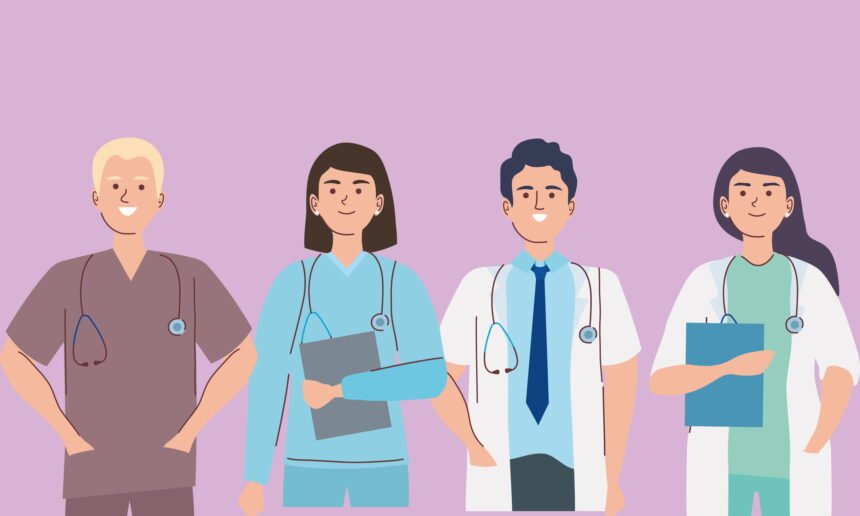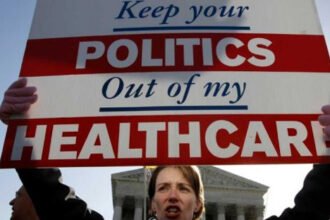One of the key challenges of working in the medical profession is protecting workers from the diseases carried by patients. If a contagion should spread through the workforce, then the capability of an entire facility, or organisation, might be compromised. We’ve seen this recently with the Covid-19 pandemic, which saw large numbers of doctors and nurses sidelined, and necessitated the introduction of a whole range of contagion-limiting measures.
During Winter, these concerns are more pressing, since viruses are more prevalent. And, naturally, Covid-19 is still around – albeit in a reduced state. For this reason, decision-makers in medicine should think about the safety of both patients and caregivers.
As the world battles with the coronavirus pandemic, frontline health workers are at an even greater risk of infection. Unfortunately, their safety often falls short due to inadequate protective equipment and lack of resources.
In this article, we will discuss why it is essential that health workers are properly protected in order to effectively combat diseases such as Covid-19.
Personal Protective Equipment
Arguably the most powerful means of limiting contagion is through personal protective equipment like facemasks and gloves and it is important to note that the precise form that the PPE takes will depend on the context. The correct use of protective clothing will help to reduce the spread of pathogens and thereby protect individuals and groups.
Face coverings protect in situations where germs might be transmitted through the mouth and nose. Their efficacy will depend on the disease in question. In some cases, they’re highly effective; in others, they’re less so.
Latex gloves and gowns are worn by surgical professionals and dentists, among others. If a doctor is going to be physically touching a patient, then gloves will mean that germs aren’t being transmitted. Given that a single doctor might physically examine scores of patients over the course of a given working week, this can be invaluable.
PPE usage training
If the PPE being provided isn’t properly used, it will be less effective. In some cases, it might be counterproductive, as it’ll give the illusion of being effective, which might lead to misplaced confidence. For example, incorrectly-sized facemasks might allow leaks, increasing the risk of exposure.
When NHS staff received training from a health and safety equipment provider, Arco they were effusive in their praise.
“We all benefited greatly from being able to examine and probe a variety of half-face and full-face masks, on more than one occasion. The team were also on hand to help answer any questions. I would highly recommend this support is available to other NHS staff.”
Staff hygiene training
Good hygiene is one of the most important aspects of proper health care. Without it, health workers are at risk of transmitting diseases to their patients and themselves. To ensure that this doesn’t happen, staff hygiene training should be a priority for any health organization.
Making staff aware of their own personal hygiene is essential, as well as how to use protective equipment properly. This includes understanding how to store, handle and dispose of hazardous materials correctly. Training should also cover areas such as handwashing techniques and decontamination procedures in order to reduce the spread of infection. Educating employees on these practices can significantly improve patient safety standards in any healthcare setting.
When staff are trained in appropriate hygiene measures, and implement them habitually, patients will enjoy a much greater level of protection. Washing hands with warm, soapy water, or using alcohol-based hand sanitiser, might work wonders. Short sleeves, short (natural) nails and minimal jewellery will all help, too.
Psychological health
Less focussed on are the mental health consequences of certain kinds of medical work. Shift work can make it difficult to get to sleep, which can have a whole range of detrimental consequences for staff members and patients. Certain kinds of medical work can also be emotionally draining, especially if it puts workers up close and personal with traumatic or life-threatening situations. Providing staff with the freedom to declare that it’s getting too much, and with access to counselling and therapy, might help to retain them in the long-term, and to keep them productive, too.
Takeaway:
In conclusion, it is clear that health workers need to be protected from the COVID-19 pandemic. Not only should they be provided with adequate protective equipment, but also should have access to mental health support and resources. Safe working environments are essential for ensuring that healthcare staff can continue their work without fear of catching the virus. Governments must act now to ensure that proper protocols are in place and implemented to protect frontline workers from contracting this deadly virus.







